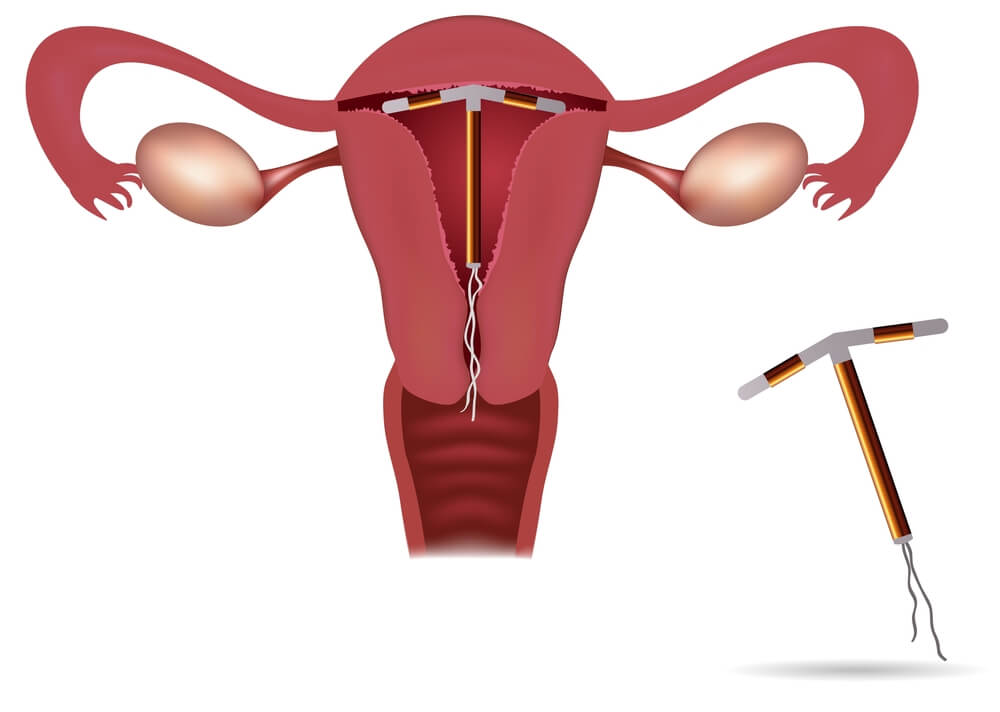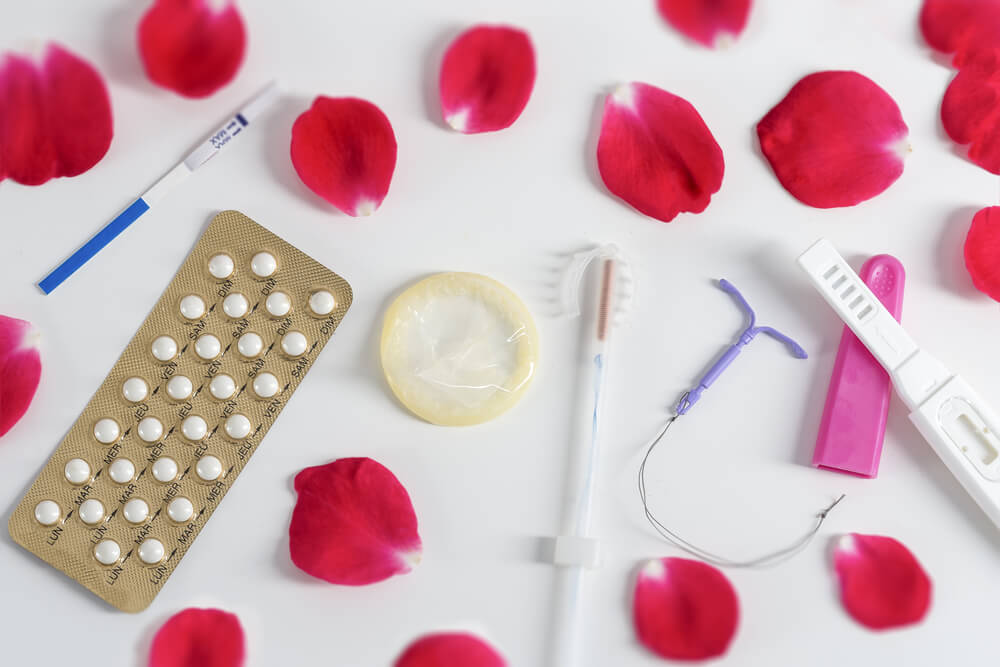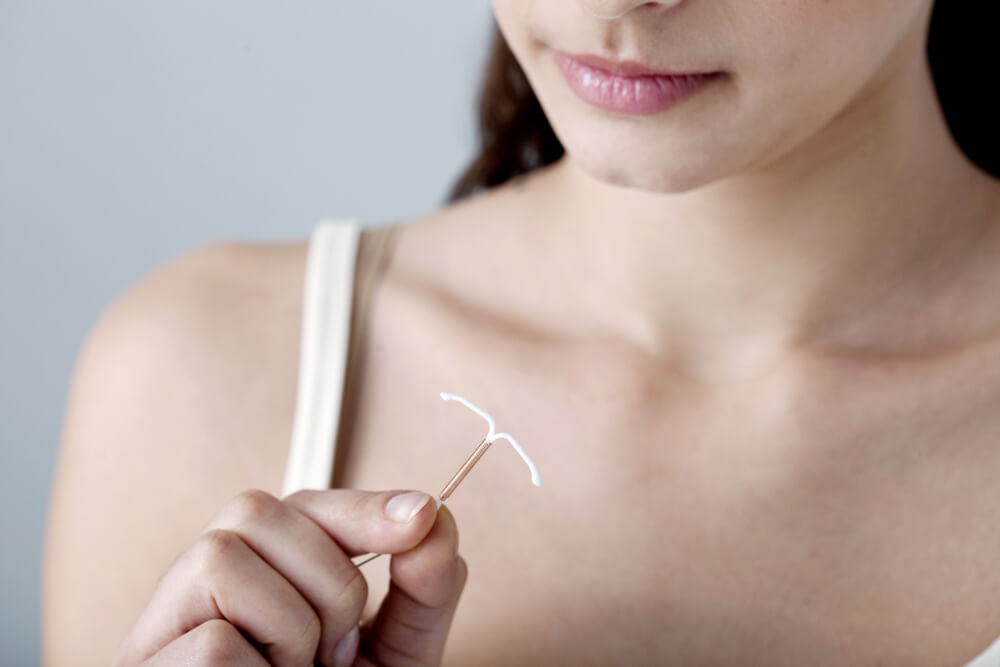If you’re in search of the best birth control option, let us present to you IUDs – intrauterine devices that are known to successfully prevent pregnancies over a longer period of time. You might have heard about IUDs, but even if you haven’t, we’re going to go through all IUD pros and cons to help you choose the best birth control plan for you.
What Is An IUD?
An IUD is a short term for an intrauterine device commonly used to prevent women from becoming pregnant. They are in the shape of the letter T and made of plastic or copper. Being around three inches long and thin, they are easy to insert and remove from a woman’s uterus. Their success rate is at 99%, which means that fewer than 1 in 100 women has reported becoming pregnant despite using an IUD.
Choosing the best birth control option for you is a big step and you should consult a specialist such as someone from the office of Trogolo Obstetrics and Gynecology. Our team of OB/GYNs is at your disposal for all questions and will make sure to provide with the necessary information and advice. Contact us today!
How Does An IUD Work?
Many women wonder how an IUD functions and helps women to not get pregnant. The thing with IUDs is that they prevent the sperm from reaching the eggs. They can help prevent the pregnancy from happening, but if you’re already pregnant, an IUD cannot do anything. If you had unprotected sex before your IUD insertion and suspect you are pregnant, make sure to tell that to your gynecologist.
Depending on the type of IUD, pregnancy is prevented with the help of special medications such as copper or Levonorgestrel. They interfere with egg fertilization and implementation, making it impossible for a woman to conceive.

What Types Of IUDs Are There?
Two different types of IUDs are known and available to women for use:
1. Non-hormonal IUDs or copper IUDs
There is only one IUD that is non-hormonal and based on copper and it’s called Paragard. Once it is inserted into your uterus it can stay there for up to 10 years and prevent you from becoming pregnant. Paragard works by thickening the uterine wall so that a fertilized egg cannot be attached to it.
Paragard is a good birth control option for women with high hormone sensitivity and it generally lasts longer than any other IUD. In consultation with your gynecologist, you should be able to decide if Paragard is a good choice for you.
2. Progesterone IUDs
Except for copper-based IUDs, there are a few hormonal IUDs available for use as well. They include Mirena, Liletta, Skyla, and Kyleena. Each of these is based on progesterone and they function similarly to birth control pills, by stop eggs from being released during ovulation.
Except for Skyla which lasts up to three years, other progestin-releasing IUDs can stay in the uterus for up to 5 years and successfully prevent pregnancies. Mirena is the biggest in size, but less likely to fall out from your uterus once it’s inserted.
Generally, all IUDs are safe to use even if a woman was pregnant before, however, consulting your healthcare provider is paramount for the sake of your health and safety. If you’re wondering about how soon can you have sex after IUD, your doctor will be able to tell you everything about that.
Inserting and Removing IUDs
Inserting and removing IUDs is not complicated and can be done in your gynecologist’s office. If you’ve decided to have an IUD inserted, your doctor will ask you to come during your period because that’s the best time for doing this. During your period, your cervix is naturally more dilated, but there are certain medications to dilate the cervix for IUD as well.
Your doctor will ask you to lie on your back and put your feet up so they could easily insert the device. They will then insert the IUD into your uterus where it will stay until the expiration date or until you decide it’s time to take it out. The procedure itself lasts no longer than five minutes, but it’s not comfortable or nice.
Even though the insertion lasts as much as 30 seconds, you will feel uncomfortable cramps, but you can also take some light painkillers before the procedure such as ibuprofen and acetaminophen. Talk to your doctor about this just in case.
Pros and Cons Of IUDs

Just like with any medical device, there are certain pros and cons of using IUDs. Some of the most common benefits include:
- Effectiveness in preventing pregnancies – fewer than one in 100 women who use IUDs get pregnant during the first year.
- Easy to insert and remove – if you want to get pregnant, you can have the device removed and start working on conception.
- They don’t require any additional work – once the IUD is inserted, you don’t have to think about taking pills or things like that. Also, you won’t be experiencing mood swings and weight gain like with birth control pills.
- Cost-effectiveness – once you get an IUD, you’re settled for at least three years which means you won’t be spending money on monthly birth control pills.
Where there are good sides, there are some bad ones, too. Although IUDs are generally safe, there are a few downsides that some women experience after inserting an IUD. They are as follows:
- Cramping and bleeding after for a week are the most common symptoms, together with irregular spotting and bleeding during the first three to six months.
- ‘How long do you have to wait to have sex after IUD insertion?’ is a common question many women ask. Usually, it is recommended that you abstain from sexual activities at least during the first week until the IUD to take effect.
- Even though it protects you from unplanned pregnancies, an IUD cannot protect you from sexually-transmitted diseases and infections. It’s recommended that you and your partner use a condom as well.
- Other common side effects include IUD faulty insertion and expulsion – some women experience this within the first year. If your IUD falls out you will need a new one inserted.
- Finally, inserting and removing IUDs is performed only by professional medical personnel, so immediately contact your gynecologist if you notice a problem with your IUD.
Who Should Avoid IUDs?
Depending on their medical state and history, some women should avoid using IUDs. These include:
- Women who are allergic to copper or have Wilson’s disease shouldn’t use Paragard.
- Women who are pregnant cannot use IUDs.
- Women who are diagnosed with an STD or a pelvic infection shouldn’t use IUDs.
- Women who have uterine, breast or cervix cancer or liver disease shouldn’t use hormonal IUDs.
- Women with unexplained vaginal bleeding should avoid using IUDs.
Whatever question you might have about IUDs, we at Trogolo Obstetrics and Gynecology will be happy to answer it. Also, make sure to tell your OB/GYN everything that you consider relevant for the procedure of IUD insertion and minimize the risks of complications. Don’t hesitate to ask and inform yourself about what your options are and choose the best for you. Call us and schedule your appointment today.





